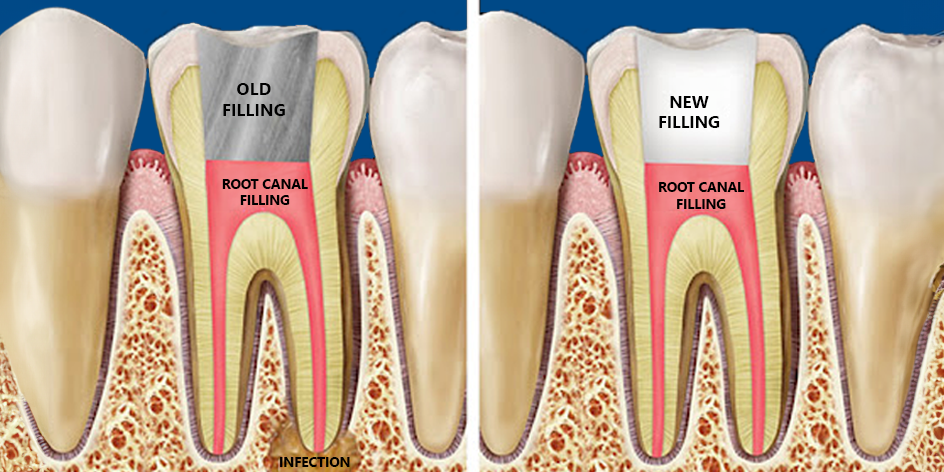Endodontic sealers are critical components in root canal treatment, playing a vital role in sealing the root canal system after the cleaning and shaping process. By effectively preventing the ingress of bacteria and fluids, these materials promote long-term success in endodontic therapy, ensuring that the treated tooth remains functional and free from reinfection.
Types of sealers:-
Endodontic sealers come in various formulations, each tailored to meet specific clinical needs. The primary types include:-
- Resin-Based Sealers- These are widely used due to their strong adhesive properties and excellent sealing ability. They can bond to both dentin and gutta-percha, making them suitable for a variety of cases. However, they may not be as biocompatible as other options.
- Calcium Hydroxide-Based Sealers- Known for their antibacterial properties, calcium hydroxide sealers promote the healing of periapical tissues. They are particularly beneficial in cases of pulp exposure or when there is a high risk of reinfection. However, they may not provide the same level of sealing as resin-based or bioceramic sealers.
- Bioceramic Sealers- Bioceramic root canal sealers have gained significant recognition in recent years for their exceptional sealing ability and biocompatibility. These materials are composed of bioactive ceramics that promote the regeneration of periapical tissues, making them ideal for a wide range of endodontic applications. Unlike traditional sealers, bioceramic sealers are less likely to cause irritation, ensuring better patient outcomes.
Bioceramic Root Canal Sealer
Bioceramic root canal sealers stand out in the field of endodontics due to their unique properties. Their ability to create a tight seal within the root canal system is unparalleled, significantly reducing the risk of fluid infiltration and bacterial contamination. The chemical composition of these sealers promotes the formation of hydroxyapatite, which aids in the natural healing process of the surrounding tissues.
Additionally, bioceramic sealers exhibit excellent dimensional stability, meaning they retain their properties over time without shrinking or expanding. This stability is critical in maintaining an effective seal long after the treatment has been completed. Furthermore, bioceramic sealers are radiopaque, allowing for easy identification on radiographs, which is crucial for monitoring the success of the treatment.
The advantages of using high-quality endodontic sealers are manifold. Here are some key benefits:-
- Improved Sealing Properties- Effective sealing is essential for the longevity of root canal treatment. High-quality sealers, particularly bioceramic options, provide superior sealing abilities that minimize the risk of reinfection.
- Reduced Risk of Reinfection- By creating a robust barrier against bacteria and fluids, sealers help to significantly lower the chances of reinfection. This is especially crucial in maintaining the health of the tooth after the procedure.
- Enhanced Patient Outcomes- The use of effective sealers translates to better overall patient outcomes. Patients experience fewer complications and a higher rate of treatment success, leading to improved satisfaction with their dental care.
- Biocompatibility- Bioceramic sealers, in particular, are known for their biocompatible properties. They do not cause irritation or adverse reactions in the surrounding tissues, making them suitable for sensitive cases.
Selecting the appropriate endodontic sealer is crucial for achieving optimal results in root canal therapy. The choice of material can greatly influence the treatment’s success and the patient’s long-term satisfaction.
Application Techniques:-
Proper application techniques are essential for maximizing the effectiveness of endodontic sealers. Understanding the factors that influence sealing quality can significantly impact the success of root canal treatments. Key considerations include:
- Temperature- The temperature at which sealers are mixed and applied can affect their viscosity and flow properties. Ensuring that the sealer is at the optimal temperature can enhance its performance and ease of use.
- Viscosity- Different sealers have varying viscosities, which can influence their ability to flow into the intricate anatomy of the root canal. Choosing a sealer with appropriate viscosity for the specific case is vital for achieving a proper seal.
- Application Methods- Various methods can be employed to apply sealers, including syringe delivery, hand application, and the use of specialized instruments. Each method has its advantages and may be more suitable for different clinical scenarios.
- Setting Time- Understanding the setting time of the chosen sealer is crucial for ensuring that it remains workable during the application phase while achieving a strong bond once set. Proper management of setting time can help avoid complications during treatment.
Conclusion
Endodontic sealers, particularly bioceramic options, are vital for successful root canal treatment. Their unique properties ensure effective sealing, enhancing the longevity and success of endodontic procedures. By preventing the ingress of bacteria and fluids, these sealers play a crucial role in maintaining the health of the tooth post-treatment.
The evolution of endodontic sealers, with the introduction of bioceramic root canal sealers, represents a significant advancement in dental materials. These sealers not only provide excellent sealing abilities but also promote the regeneration of periapical tissues, offering patients a more favorable outcome.
As the field of endodontics continues to evolve, the importance of selecting the right sealer cannot be overstated. Dental professionals must stay informed about the latest advancements and choose materials that align with their clinical goals. By doing so, they can ensure the highest level of care for their patients, ultimately leading to better treatment outcomes and enhanced satisfaction.

